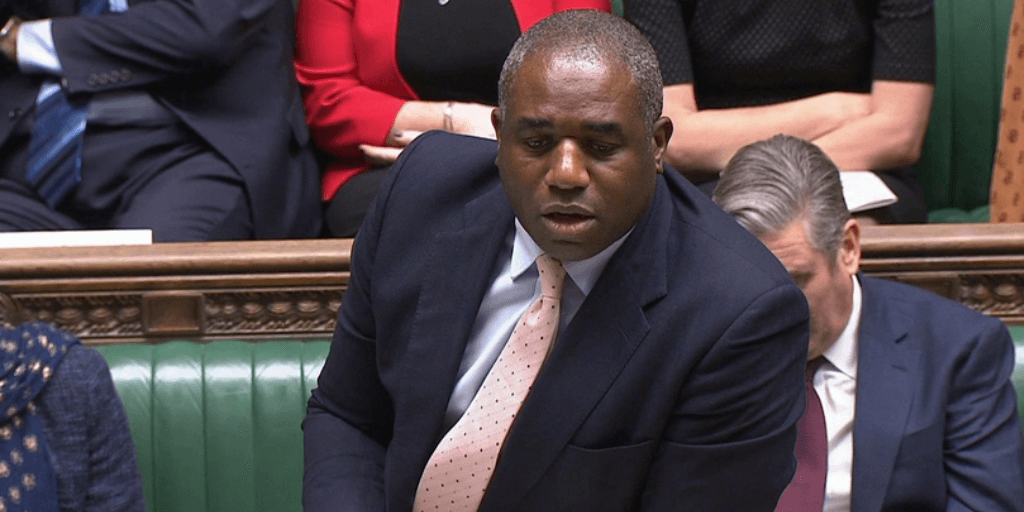Source: Addis Standard
Addis Abeba – The UK Parliament has discussed recent tensions between Ethiopia and Eritrea, with former Foreign Secretary David Lammy, who is now deputy prime minister, reported to have had directly cautioned Ethiopia’s Foreign Minister, Gedion Timotheos, against “miscalculation” while urging dialogue with Eritrea.
In a debate on 16 September 2025, Gerard Anthony Lemos, Government Whip, said U. K’s former Foreign Secretary David Lammy spoke to Ethiopia’s Foreign Minister Gedion “in August, when he warned against the risk of miscalculation and encouraged dialogue with Eritrea. Similar points have been made to the Eritrean Government by our officials there.”
On the same day on 16 September, Prime Minister Abiy Ahmed reiterated his government’s stance on Ethiopia’s quest for sea access, framing the issue as a national imperative.
“It is not wise to assume that a country as large as Ethiopia should be handed to our children while encapsulated,” Abiy said during the inauguration of his latest book Medemer, insisting that Ethiopia cannot remain “a geographic prisoner.”
He stressed that his government does not believe war is necessary to secure access. “That is why we have been pleading for five years,” he said, adding that Ethiopia remains committed to negotiations “on any platform, with any entity that allows dialogue, in accordance with international law.”
However, Abiy made clear that sea access is inevitable. “If there is any Ethiopian who believes that Ethiopia will forever remain a geographic prisoner, that person is dead one,”
During the parliament’s session, Desmond Henry Browne of Ladyton, asked whether the U.K. government was monitoring the risk of renewed cross-border conflict. He recalled that the 2020–22 war in the Tigray region, in which Ethiopia and Eritrea fought against Tigrayan forces, left “between 160,000 and 600,000 civilian deaths.” He pressed the government on the implications of a “new and unthinkable unholy alliance between Eritrea and the TPLF.”
The UK does not support aggressive action or rhetoric that threatens a country’s sovereignty and territorial integrity
Government Whip Lord Lemos
Responding for the government, Lord Lemos said: “we cannot speculate at this time about what position either Government will take in relation to the tensions within Tigray. However, for sustainable peace, the full implementation of the Pretoria cessation of hostilities agreement is required, including the withdrawal of forces other than the Ethiopian National Defense Force from Ethiopian territory.”
Martin John Callanan of the British Conservative party, questioned whether Ethiopia’s ambition to gain Red Sea access was a driving factor, to which Lord Lemos replied: “the Government’s position is that countries must pursue commercial access to the sea through peaceful, negotiated means. The UK does not support aggressive action or rhetoric that threatens a country’s sovereignty and territorial integrity.”
Peers also pressed the government on the UK’s declining influence in Africa, reduced aid spending, and accountability for sexual violence in the Tigray region.
Arminka Helic, another MP from the British Conservative party, cited a report documenting “mass rape, sexual slavery and forced pregnancy in Tigray, allegedly committed by Eritrean and Ethiopian soldiers,” calling for an international investigation into “investigation into a possible crime of genocide”. Lord Lemos said the UK remained committed to supporting survivors and “follows international protocols” on genocide allegations.
On aid, Lord Lemos confirmed the UK had reduced Official Development Assistance to 0.3% of GNI, partly to meet defense spending targets, but noted Ethiopia remains “one of the largest recipients of UK ODA” at £161.7 million this year.
Henry Campbell Bellingham of the British Conversative party urged the UK to play a leading role in preventing conflict, to which Lord Lemos responded: “The approach to any tensions should be about dialogue. We have helped to identify suitable facilitators for that dialogue. In March the UK issued a joint statement with the EU and 23 countries emphasizing our support for the cessation of hostilities agreement, urging all parties to refrain from violence and engage in urgent dialogue.” AS







